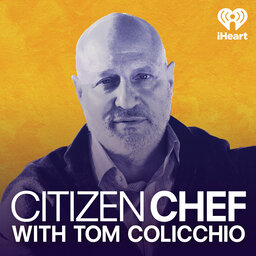A Primer on SNAP with Joel Berg of Hunger Free America
Americans aren't hungry because of drought or famine. Some say Americans are hungry because there isn't political will to make sure everyone is fed. How did we get here? In this episode, Tom Colicchio adds a chapter in his food policy primer season. He's joined by Joel Berg, CEO of Hunger Free America, who provides a short lesson in U.S. nutrition assistance programs and the future of fighting food insecurity in America.
Learn more about your ad-choices at https://www.iheartpodcastnetwork.com
 Citizen Chef with Tom Colicchio
Citizen Chef with Tom Colicchio


